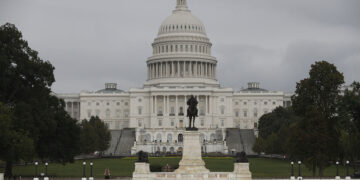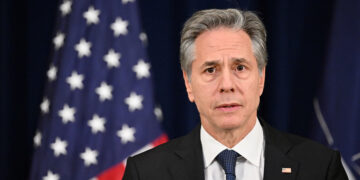Human Rights Record
The UAE is a federation ruled by seven unelected "emirs" or princes who wield absolute power. Citizens have no enforceable civil or political rights, and about 90% of the country's nine million residents are migrant foreign workers who are subject to serious abuses. The government restricts freedom of expression, discriminates against women and arbitrarily detains and forcibly disappears individuals who criticize authorities. The UAE is directly and indirectly conducting military operations in Yemen and Libya that have killed scores of civilians. For more information, see DAWN's short review of the UAE's rights record.
Military Support
The United States is a key military backer of the United Arab Emirates, and the two countries maintain close security and diplomatic cooperation. The U.S. is the largest sellers of arms to the UAE. The U.S. and UAE currently have $28.1 billion in active government-to-government arms sales through the Foreign Military Sales program, in which the U.S. government facilitates purchase of weapons from private American companies. Since 2014, the U.S. has also approved $7.2 billion in commercial sales to the UAE from U.S. manufacturers. The U.S. provides moderate amounts of aid to the UAE to build counter-terrorism, counter-narcotics and export control capacity. It has been reported that the U.S. is planning to sell more sophisticated weaponry to the UAE – F-35 stealth fighter and advanced armed drones – as a reward for its September 2020 agreement to normalize relations with Israel.
The U.S. deploys approximately 3,500 troops in UAE military facilities and trains UAE authorities on counter-terrorism, border security, and anti-proliferation operations. U.S. aircraft and warships are hosted at UAE air and naval bases, and the two countries conduct joint military exercises. In recent years, a number of ex-U.S. intelligence officers have worked as contractors for UAE intelligence teams that engage in surveillance and hacking targeting journalists and human rights activists, among others, as well as U.S. citizens.
For four years, the UAE was an active member of the Saudi-led coalition conducting military operations in Yemen, to which the U.S. provides logistical and intelligence support. In summer 2019, the UAE withdrew most of its forces from Yemen but continues to back local partners in southern Yemen as well as to control Yemen's Socotra Island, where it is reported to be establishing a military base. UAE-backed Yemeni troops continued to commit abuses in Yemen. The U.S. government is investigating claims that the UAE unlawfully transferred weapons purchased from the United States to its ally, the Southern Transitional Council (STC). The war in Yemen has taken the lives of 12,000 civilians and has exacerbated a humanitarian crisis there. U.S government lawyers have warned that the support provided by the U.S. to military operations in Yemen puts U.S. officials at risk of being found liable for war crimes.
The UAE also carried out indiscriminate attacks in Libya. It continues to provide arms and military support to armed groups in Libya backed by Khalifa Hiftar that are responsible for crimes against humanity, despite the UN Security Council embargo on all military transfers to Libya.
Diplomatic Backing
The U.S. considers the UAE to be a key partner in the Middle East, and it is the largest single market for U.S. exports in the Middle East. Bilateral relations are strong, and the countries regularly hold meetings, including at the most senior level. U.S. permanent membership on the U.N. Security Council thwarts efforts at accountability there for Emirati abuses, especially as a result of the UAE's actions in Yemen. The U.S. failed to support efforts at the U.N. Human Rights Council to establish an independent, international inquiry into war crimes in Yemen, instead pushing for a "consensus" solution that allowed the Saudi-led coalition and UAE-backed armed groups to avoid accountability for Yemeni civilians killed or injured by U.S.-made weapons. In the wake of the UAE signing a normalization agreement with Israel, the U.S. government has pledged to work with the UAE, one of its "most reliable and capable regional partners," to develop a strategic agenda for the Middle East.
Lack of Accountability for Abuses
The U.S. is continuing to sell arms to the UAE, to host US troops there, and to offer training to its security forces, despite credible evidence of abuses by the UAE in its military operations in Libya and Yemen, and unlawful crackdowns by the UAE's security forces against political dissidents, journalists, academics, and human rights activists. U.S. military and diplomatic support for the UAE is facilitating support for armed groups in Yemen. The U.S. government has also failed to abide by warnings by its own lawyers and watchdogs to set limits and conditions on arms sales to the UAE, to minimize civilian harm in Yemen. The Trump administration has bypassed Congressional restrictions on some of these arms sales, including by certifying the existence of an emergency that allowed transfer of weapons to the UAE over the objections of Congress.
Recommendations
The US should suspend all military sales and assistance to the UAE, until such time as the UAE ceases to engage in widespread and systematic human rights violations and violations of the law of war in Yemen and ends its military activities and arms transfers to Libya, in violation of the U.N. Security Council embargo. The U.S. should stop providing intelligence support to the UAE for the war in Yemen. It should promote implementation of the U.N.-brokered Stockholm Agreement to end the war in Yemen. And it should support other U.N.-led peace efforts that might lead to de-escalation and a broader peace settlement.
On the diplomatic front, the U.S. administration should support multilateral efforts to rectify to the UAE's human rights abuses, including implementing the recommendations made by the United Nations Human Rights Council and regional and international human rights treaty bodies. The US should propose that the U.N. Security Council sanction UAE entities involved in continuing weapons transfers to Libya, in violation of Security Council resolutions. Where appropriate, the U.S. should consider using the Magnitsky Act to sanction individual Emirati officials responsible for abuses. It should restrict the ability of U.S. intelligence, military or security officers to work for foreign governments, to ensure they are not using intelligence or skill sets obtained during their employment with the U.S. government to contribute to human rights violations.





































